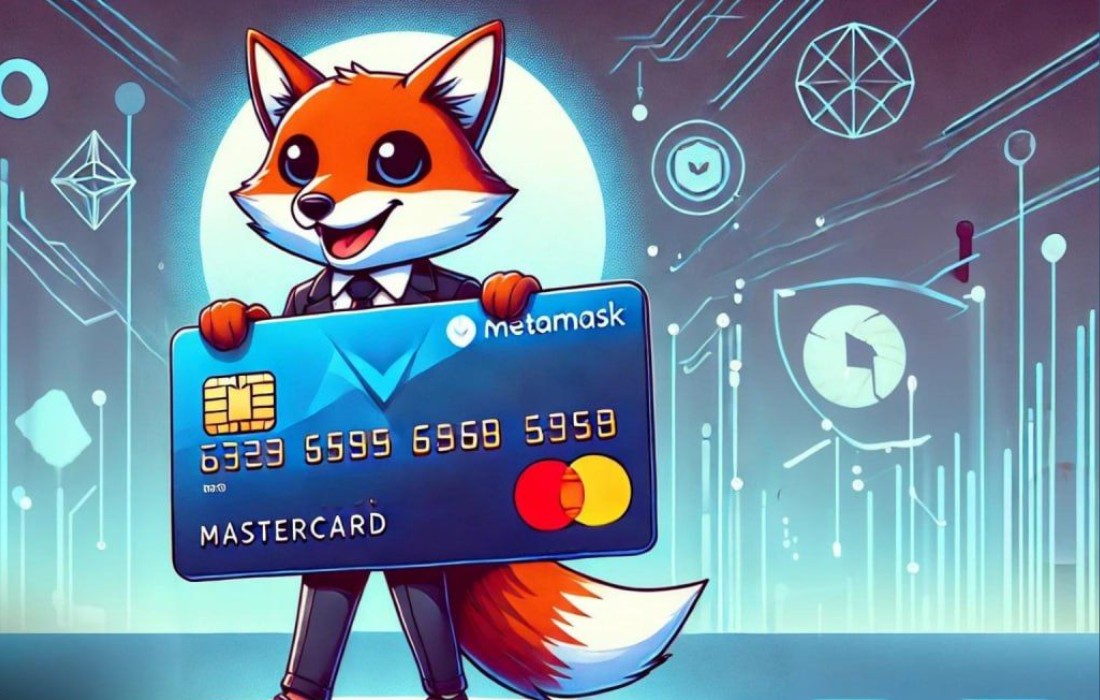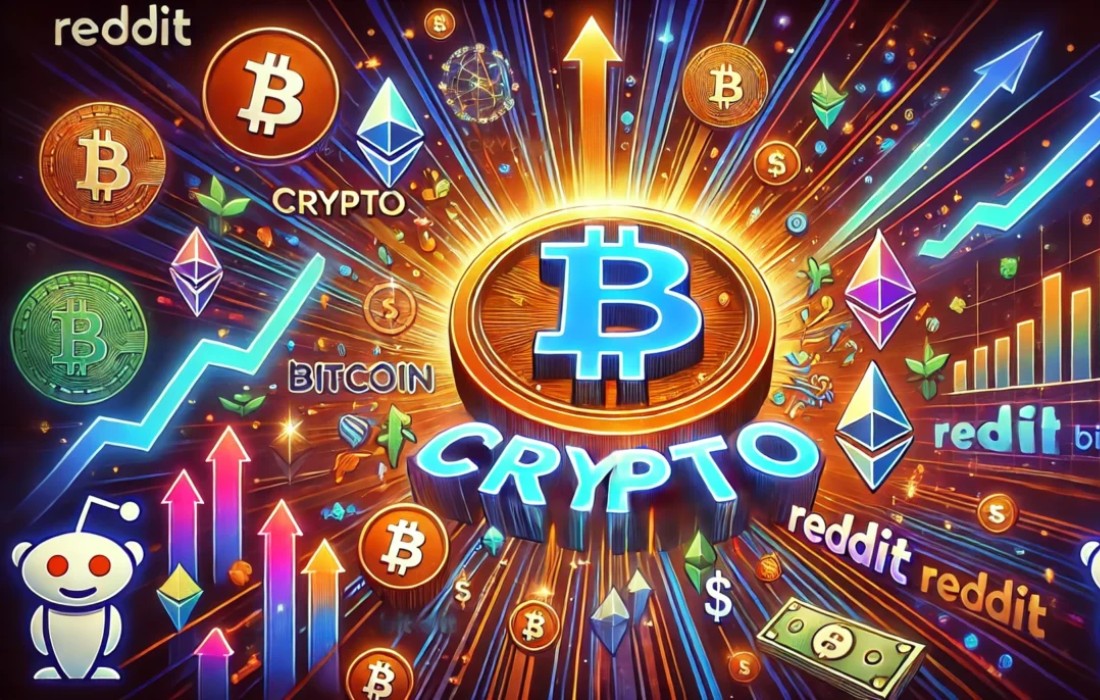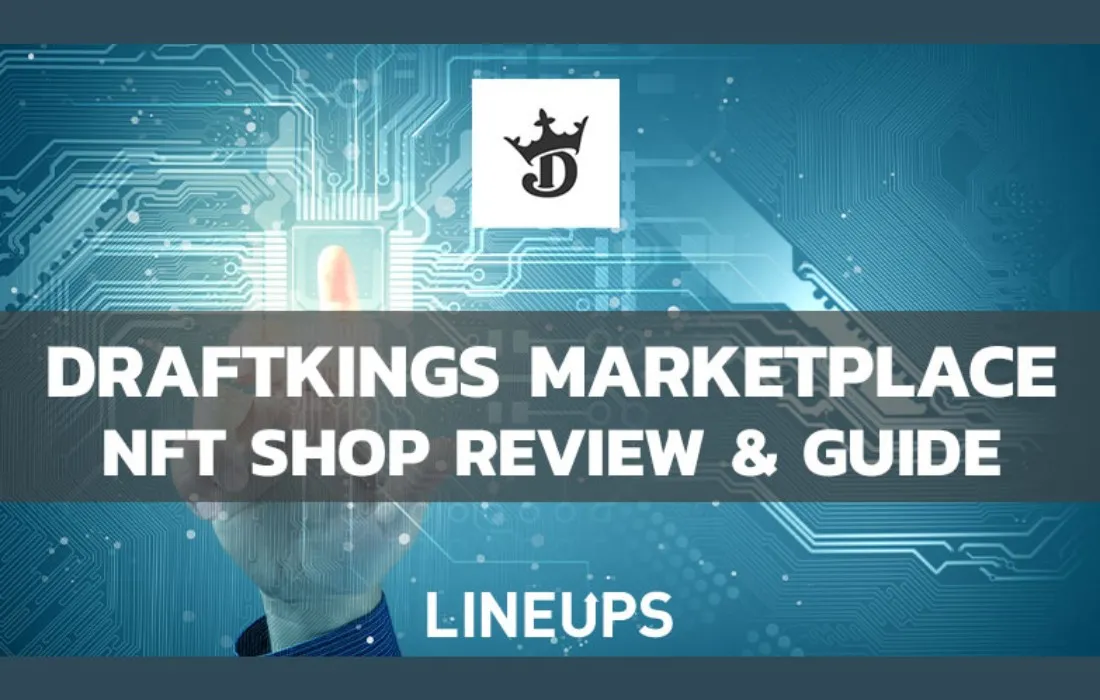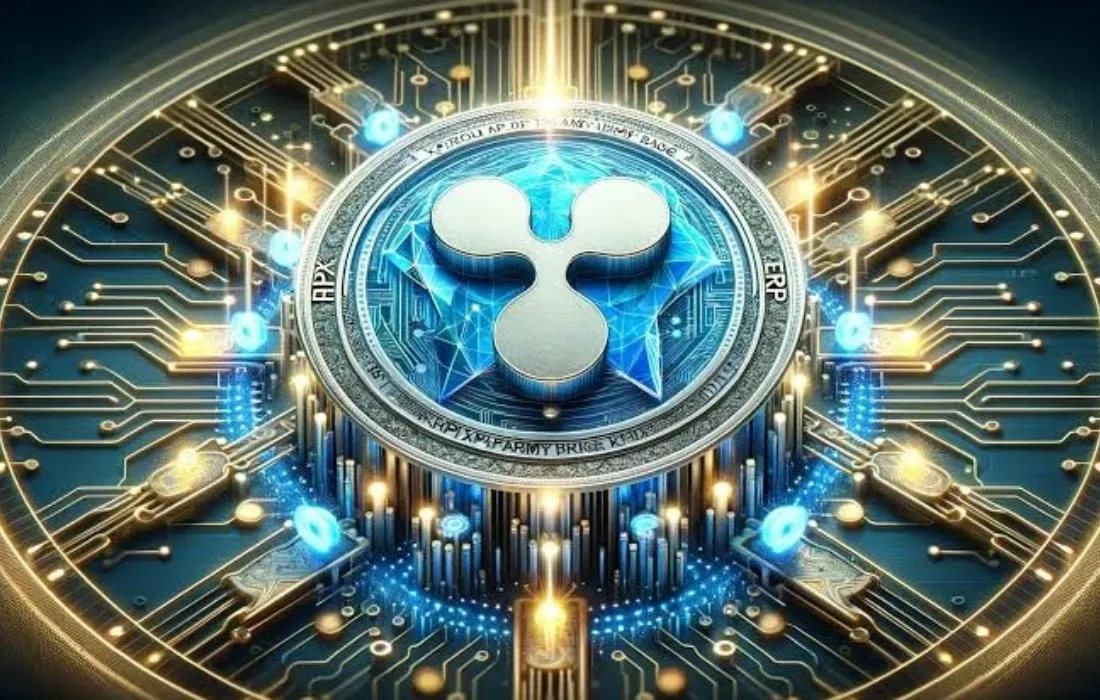Explore the evolving world of NFT DApps: Decentralized applications built on blockchain are revolutionizing our understanding of digital ownership and providing lucrative opportunities for creative expression.
NFT DApps: The interplay between NFTs and DApps creates a vibrant ecosystem where digital ownership, decentralized finance, and programmable assets converge, bringing forth innovative solutions across many domains.
The Intersection of NFTs and DApps
Decentralized applications (DApps) and non-fungible tokens (NFTs) are two critical components of the blockchain and cryptocurrency ecosystem. Although serving different functions, they intertwine and enhance each other in many cases.
For instance, NFTs can be used within DApps to represent ownership or access rights for both physical and digital assets. DApps can tokenize unique items using NFT standards like ERC-721 or ERC-1155, such as in-game assets, digital art, or real estate.
NFTs are commonly used to represent in-game assets within gaming DApps. These assets can be traded and bought on secondary markets, elevating the idea of true ownership and interoperability across multiple virtual worlds or games.
Moreover, DApps built specifically to create, manage, and trade digital assets have gained prominence due to the rise of NFTs. By tokenizing their creations, artists and content creators can generate unique digital assets that consumers can buy, sell, and own. This has opened new opportunities for creators to interact directly with their audiences while providing collectors with a secure and verifiable way to own digital assets.
The programmable nature of smart contracts reinforces the convergence of DApps and NFTs. DApps can leverage smart contracts to automate many NFT-related tasks, including content licensing, royalty distribution, and even deploying dynamic features within the NFTs themselves. The high programmability of NFTs within decentralized applications enhances their utility and functionality.
What are NFT DApps?

Blockchain-based applications that integrate non-fungible tokens are called NFT DApps. Using these applications, users can create, buy, sell, and trade original digital products like art, collectibles, and in-game items. NFT DApps empower gamers, artists, and content creators by leveraging the transparency and security of blockchain technology to transfer ownership.
The significance of NFT DApps lies in providing a decentralized marketplace, facilitating peer-to-peer transactions, introducing innovative ownership models, disrupting existing industries, and democratizing access to the global digital economy.
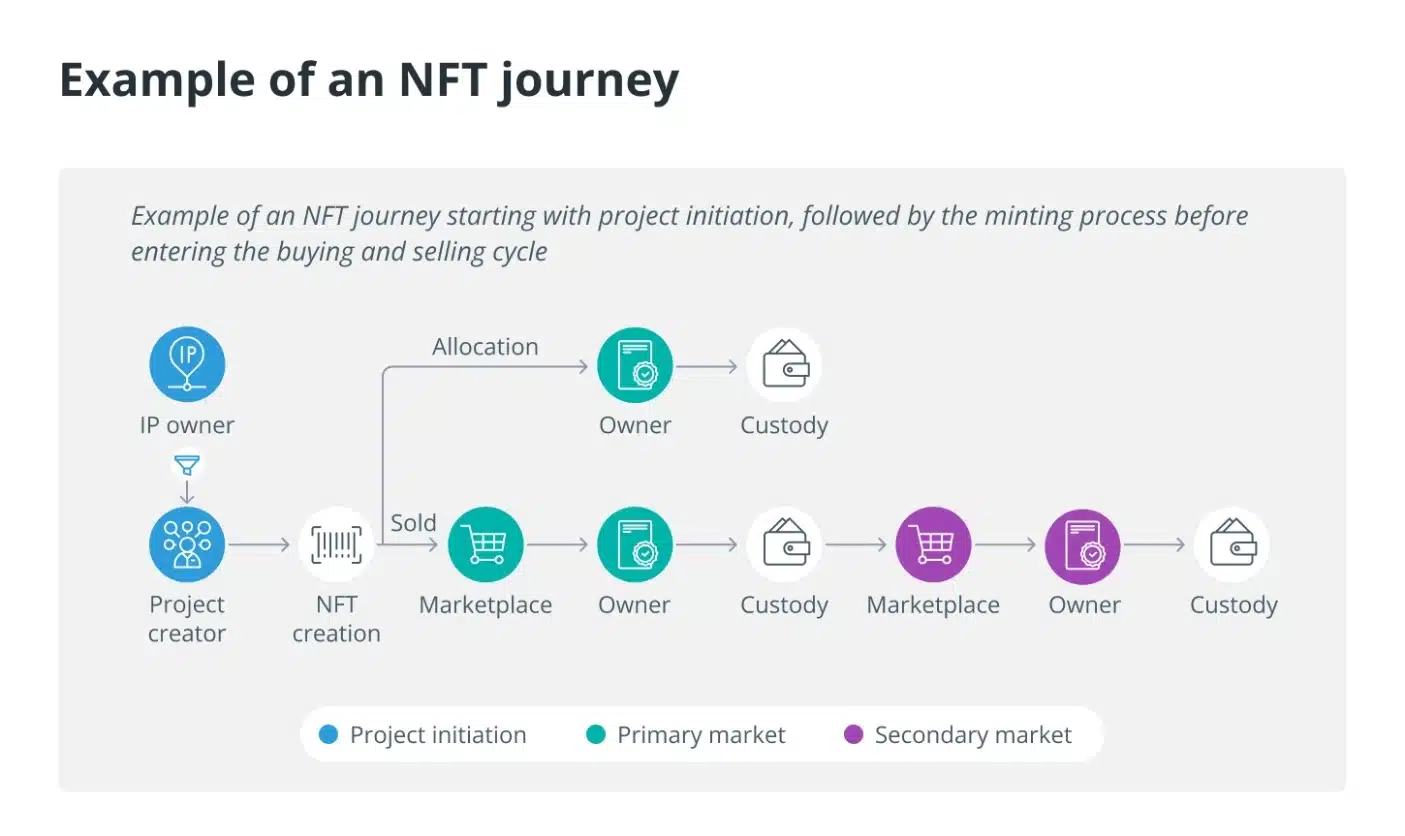
Types of NFT DApps
NFT DApps encompass various platforms, each designed for different aspects of the digital and blockchain realm.
Art and Collectibles Platforms
Artists tokenize their works into NFTs on platforms like OpenSea and Rarible, which act as marketplaces for people to buy, sell, and trade their original digital assets. At the center of the emerging digital art wave, these platforms allow artists to assert ownership and value within the blockchain ecosystem.
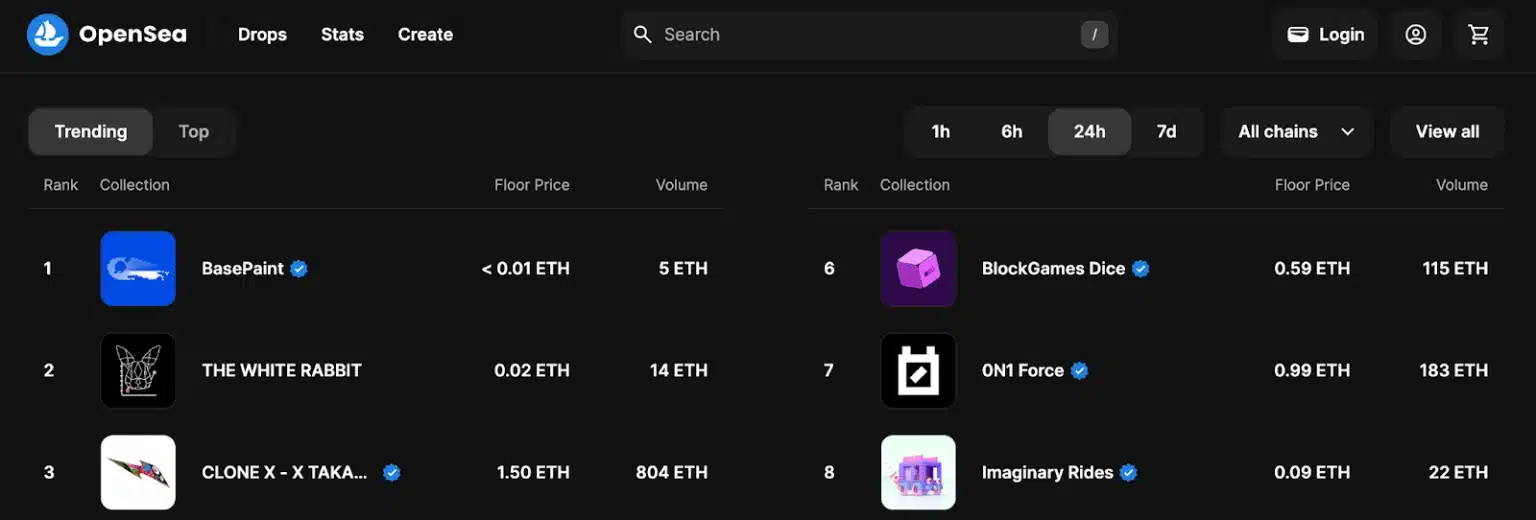
Gaming and Virtual Worlds
NFTs are utilized by DApps like Decentraland and CryptoKitties to represent in-game items, characters, or objects. These assets can be bought, sold, and traded, creating a thriving virtual economy. The fusion of blockchain technology with gaming has led to the emergence of groundbreaking concepts like play-to-earn, enabling users to earn by participating in blockchain-based games.
Virtual Real Estate
Virtual real estate platforms offer a fresh perspective on NFTs. In addition to developing and profiting from their virtual real estate, users can buy, sell, and trade virtual lands and properties. This novel idea has garnered interest in the concept of user-owned, decentralized, and enhanced metaverses for a new era of digital asset ownership.
Trading Marketplaces
Trading marketplaces like Foundation and Mintable are an integral part of the NFT ecosystem, providing artists and content creators a medium to mint their NFTs and showcase them to a global audience. These platforms act as intermediaries, connecting creators and fans, driving the overall growth of the NFT industry.
Decentralized Finance (DeFi) and NFT-Collateralized Assets
Beyond the creative realm, NFTs have found applications in DeFi. DApps like Aavegotchi and Rarible explore integrating NFTs as collateralized assets in DeFi protocols. By allowing users to lend or borrow based on the value of their NFT holdings, this innovative use case unlocks new possibilities at the intersection of digital ownership and decentralized finance.
Steps to Create and Launch an NFT DApps
Creating NFT DApps involves a series of steps, as explained below:
Identify the Concept
Before commencing development, it’s crucial for the team to clearly define the concept of the NFT DApps. This includes outlining the purpose, target user base, and the standout features that will set the DApp apart in the crowded NFT market.
Choose the Blockchain
Selecting the appropriate blockchain platform is a prerequisite for developing NFT DApps. With an established infrastructure and broad support for NFT standards like ERC-721 and ERC-1155, Ethereum is a popular choice. Alternatively, other blockchain platforms like BNB Smart Chain could be considered based on the project’s specific requirements.
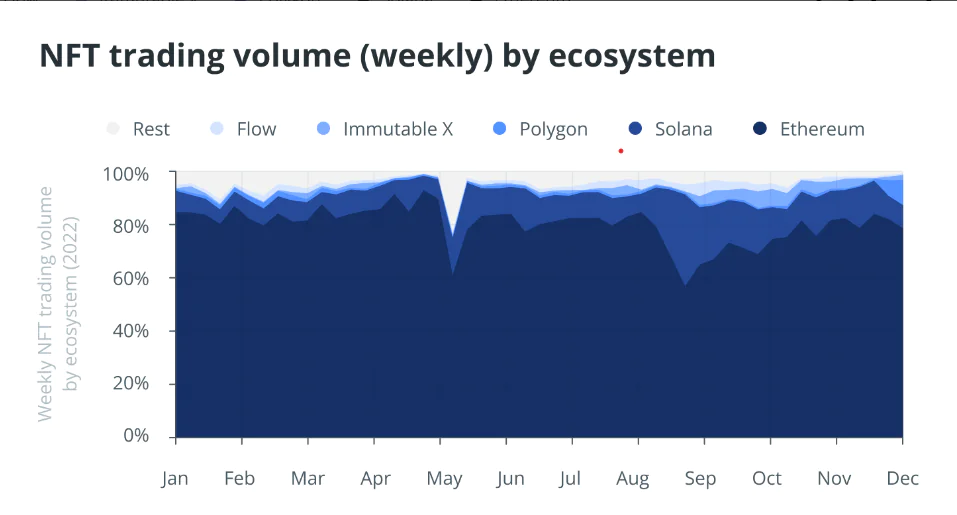
Set Up the Development Environment
Install the necessary libraries and tools to set up the development environment. This includes a smart contract development kit, a blockchain development framework, and any additional tools required for testing and automation.
Develop Smart Contracts
Create the smart contracts that will govern the distribution, creation, and ownership of NFTs. These contracts define the terms and features of the NFTs, including minting, buying, selling, and transferring.
Integrate Wallets
Integrate wallets to allow users to securely manage their NFTs. This involves connecting with wallets like MetaMask or Trust Wallet to enable users to interact with the DApp through their cryptocurrency wallets.
Deploy NFT Minting Functionality
Develop minting functionality to allow creators to tokenize their assets into NFTs. Developers need to design an intuitive user interface (UI) for artists and creators to easily upload their work, add metadata, and mint NFTs on the blockchain. This ensures a user-friendly navigation experience on the platform.
Additionally, implement features for buying, selling, and trading NFTs if the NFT DApp includes a trading marketplace. Integrate functionalities like auctions, fixed pricing, and real-time price adjustments.
With a user-friendly, visually appealing interface, users will be able to browse, buy, and sell NFTs seamlessly. Consider adding features like filters, search, and an easy-to-use wallet interface.
Rigorously Test and Deploy the NFT DApps on the Blockchain
Before deploying the NFT DApps on the blockchain, ensure that the application has been thoroughly tested to identify and resolve any bugs or security vulnerabilities. Once ready, deploy the relevant files and smart contracts on the chosen blockchain. This involves interacting with the blockchain network to allow users worldwide to access the NFT DApps.
Launch and Market
Launching an NFT DApp requires a well-orchestrated strategy to generate buzz and ensure a seamless market entry. The process begins with deploying rigorously audited smart contracts on the mainnet, officially unveiling the NFT DApps to the world. Simultaneously, it is crucial to implement a comprehensive marketing plan to amplify visibility.
Craft a compelling narrative that spotlights the unique value proposition of your NFT DApps, and disseminate it across multiple channels such as forums, social media platforms, and cryptocurrency communities. Forge connections with influencers and thought leaders within the NFT industry to cultivate an engaged audience and establish credibility.
Develop a meticulously structured website that serves as a central information hub, complete with detailed documentation and intuitive user onboarding processes. During the launch phase, prioritize fostering a robust feedback loop with the community, swiftly addressing user concerns and fostering a positive, collaborative environment.
Post-launch, it is imperative to maintain an open line of communication with your user base, promptly responding to their inquiries and continually refining the DApp to adapt to evolving market dynamics.
Challenges in Creating and Launching an NFT DApps
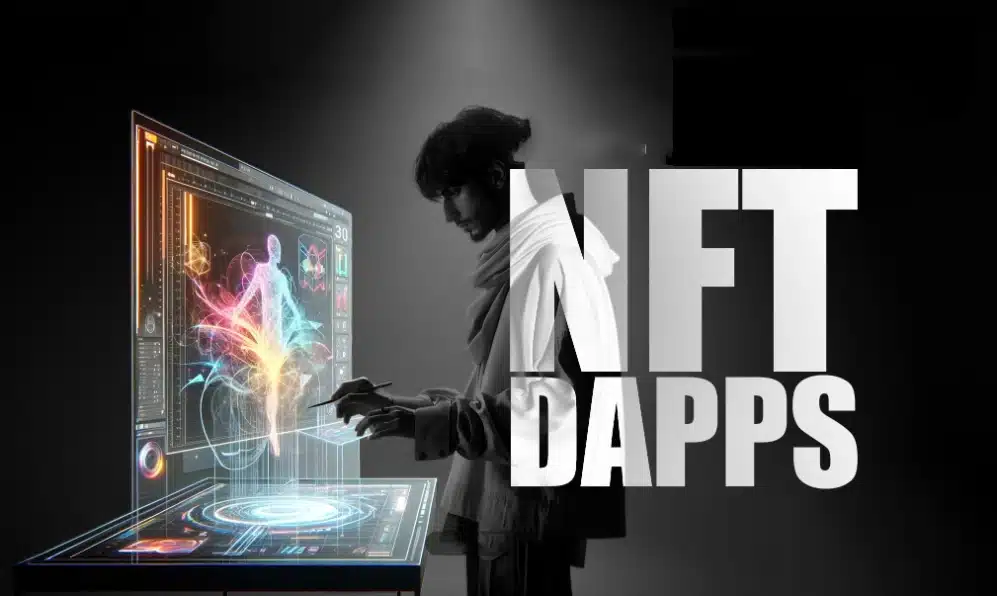
The development and launch of NFT DApps are fraught with multifaceted challenges. A primary hurdle is achieving technical scalability to accommodate the burgeoning demand and complexity of NFT transactions. Ensuring a seamless and efficient user experience becomes paramount, necessitating innovative solutions to mitigate potential network congestion and sluggish transaction processing times.
Securing smart contracts is of utmost importance, as vulnerabilities can have irreversible consequences for users and the integrity of NFTs. Moreover, standing out in a saturated market where numerous NFT DApps vie for user attention can prove arduous.
An additional layer of complexity arises from navigating legal ambiguities, particularly concerning intellectual property rights and regulatory compliance. Overcoming these challenges demands a judicious fusion of technological expertise, robust security protocols, user-centric design principles, and an acute awareness of the evolving regulatory landscape surrounding NFTs.









